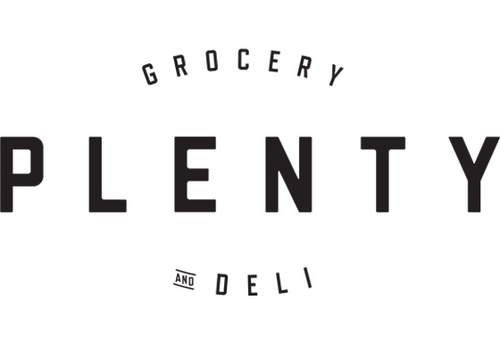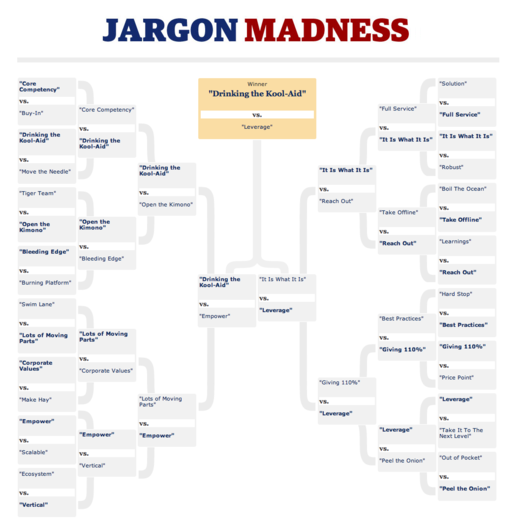
Smart. Allegra in the pet food aisle.
You’re reading Signal v. Noise, a publication about the web by Basecamp since 1999. Happy !

Smart. Allegra in the pet food aisle.
Formality is like a virus that infects the productive tissue of an organization. The symptoms are stiffness, stuffiness, and inflexibility – its origin never with those who do but with those that don’t.
When did you last hear a programmer or designer clamor to wear a suit to work? The order always come from the executives (followed shortly by a request for those TPS reports!)
Formality is more than a dress code, of course. It infects how people talk, write, and interact. It eats through all the edges and the individuality, leaving only the square behind. In other words, it’s all about posture, not productivity.
And once you place being proper above getting great work done, it’s unlikely that you’ll attract the best and most creative minds to work for you. (Though you’ll surely have no trouble filling the ranks with folks who can fit the existing molds.)
Formality is so ingrained in much of our working culture that even though people intuitively understand its harm, as in the colloquial “it’s just a formality, but we have to…”, it lives on.
Thankfully, there seems to be a cure: Companies started and run by doers. People close enough to the work to see the damage of formality and who’ll have none of it.
In technology, the best and brightest have long belonged to this class. Their images are iconic: Bezos in his jeans and sports coat, Jobs in his turtleneck and New Balance shoes, Zuckerberg in his hoodie.
Contrast this to the suits running RIM or Nokia or IBM. They’re either in literal decline and despair or they’ve found a second life of relevance in the tombs of The Enterprise.
We’re breaking down the stranglehold of formality everywhere. No more personal secretaries, memos on official letterhead, meetings that must happen in person. There’s never been less mental mask switching between work and play. We wear the same clothes, use the same technology. It’s a liberation of the mind and it’s the new world order.
Remember way back to, oh, six months ago when champagne was popping and markets were roaring? Back when companies with no or few profits could premiere on the world stage to grand applause by merely converting a dollar into fifty cents? Those were the good times of boom, boom, pow.
It’s amazing how quickly everyone has gone from rocking out to that tune to loathing those same beats. But that’s exactly what’s happened to the pop stocks of just a few minutes ago. Here’s a brief recap of just the last six months for three former stars:
So between just these three, some $40 billion has been extracted from the market caps that pension funds and other last-sucker-in-line investors bought into. While, in the process, soured many on the idea of the public markets and enriched investment bankers hawking the toxic stocks. Hey, at least someone got out while the going was good.
Can someone kick the radio? We need a remix to get this party started again. Or we could, you know, change the channel and start valuing stocks based on fundamentals.
Nah, on second thought, fuck that. I hear Twitter is going for a $10B IPO. This Time It’s Different!
Note: Clarified the $40B extraction.
Our good friends, Davey Sommers and Gwen Harley, are currently running a Kickstarter to support the opening of their locally-focused grocery and deli in Chicago.

We’re big fans of increasing accessibility to fresh and natural food products. A few months ago, Emily posted about the unique CSA benefit provided to the 37signals team. You can see this means a lot to us. Nourishing yourself with fresh, unprocessed foods translates into feeling and performing better every day. You are what you eat. /play rimshot
Part of PLENTY’s mission is to serve underrepresented diets. Sensitivity or complete intolerance to gluten is becoming increasingly common in our world of processed food. I myself gave up gluten one year ago and shops like PLENTY help take the challenge out of living gluten-free.
Just like any startup, jumping into the food business isn’t easy. Davey and Gwen can use all the help they can get to make this dream a reality. Every little bit helps in working towards their fundraising goal.
I hope they’ll inspire you to support the cause.

After fielding over a dozen offers for Sortfolio, we finally came to an agreement this weekend with a couple of entrepreneurs who will be the new owners of Sortfolio.
This is big news for our Sortfolio customers. Back in May we said we’d either be selling Sortfolio for $480,000 or retiring the site on July 1. And now it’s all good news: Sortfolio has been sold to a great team.
This means Sortfolio lives on!. Sortfolio’s unique visual search will remain the best way for web designers to find clients and clients to find web designers.
We’ll be transitioning the site to the new owners over the next couple of months. We’ll post more details once the transition is over. There will be no interruption of service for current customers, and we’ve turned signup back on so new customers can list their web design firms on Sortfolio.
We’re especially happy that Sortfolio’s found a new home because over the last week or so we’ve been getting emails from people saying how important Sortfolio has been to their business. Emails like:
...All of my leads and livelihood flow through Sortfolio. It’s how I pay for my health insurance, groceries, mortgage, etc…
and
...I can honestly say that Sortfolio changed our lives. Sortfolio brought in the best leads ever and we were able to crawl out from the financial hole we landed in. It actually does that even now, on daily basis.
So here’s to a second lease on life, Sortfolio!
A lot of people over the years have asked us how we use Basecamp to manage our projects and collaborate at 37signals.
We’ve given tours, we’ve shown screenshots, we’ve shared excerpts, but that’s like peering through a tiny hole in the wall. You’d have a much better view if there was no wall at all.
So we built in a special feature that’s unique to our Basecamp account that allows us to make one of our projects completely public. It’s read-only, it can’t be changed, but you can see all the discussions, to-dos, files, etc., just as they happened.
Whenever we work on a new feature in Basecamp, we create a new Basecamp project. We keep all the discussions, to-do lists, assignments, relevant files, relevant text docs/notes, and any related schedules in the project.
Recently we added the ability to export your Basecamp projects and files into a tidy, self-contained web site you can download to your computer and view in your web browser. This way you can take your data with you, make a backup, or send a copy to a client.
So to get started we created a new project in Basecamp called “BCX: Exporting”. Note: We put “BCX” in front of any new project that’s related to the all new Basecamp. This way, at a glance, we know that this project is for this product, and not for something else we’re working on.
Here’s a link to that project.
You can see all the discussions we had around the export feature. Here’s a meaty discussion (38 comments) that involved ops, dev, and data. And for the designers/writers out there, here’s a design discussion about a specific to-do.
Every file and screenshot we shared in this project is stored on a single page. And you can see a list of every to-do we completed before deploying the feature.
And if you want to see exactly what happened, day-by-day, check out the super-useful Catch Up view. You can step back in time, one page/day at a time. For example, May 22nd was a particularly busy day with 10 people contributing feedback to the project. And May 9th saw a nice handful of important to-dos completed by Jeff.
Lastly, here’s an FAQ that Jeff put together for the support team. It’s super helpful to use Basecamp Text Documents for things like this.
We hope a look at one of our real Basecamp projects helped give you an idea how we use Basecamp to centralize discussions, files, to-dos, and decisions.
We’ll be opening up more of our projects to public view in the coming weeks. We’ll share different kinds of projects too – some heavier on the design side, some heavier on tech, etc.
After seeing this, do you have any questions about how we use Basecamp? We’d be happy to share any tips/tricks or best practices we’ve come up with along the way.

Spotted at Forbes: Jargon Madness
It’s taken us eight years to assemble the fabulous ensemble at 37signals. Here’s how we’re split across specialities (counting Jason as a designer and me as a programmer):

“Other” currently constitutes Noah on data, Shaun on video, and Andrea as the office manager.
This year we’re probably going to hire at least two more people for support (we’d love to offer true 24/7 coverage) and one person to help with conversion. No plans to hire any more people in design, programming, or operations at the moment.
Back in 2008 we shared some of our workplace experiments including the four day work week (still in effect May – Oct), funding people’s passions (we’re still doing this, too), and discretionary spending accounts (everyone still gets a company Amex they can use for anything work related).
This June we’re trying something new.
This June will be a full month of free time to think, explore, mock up, prototype, whatever. People can go solo or put together a team – it’s entirely up to them. This is a month to unwind and create without the external pressures of other ongoing projects or expectations. We’re effectively taking a month off from non-essential scheduled/assigned work to see what we can do with no schedule/assignments whatsoever.
Some companies are famous for their 20% time where employees get 1/5th of their time to work on their own projects. In spirit I like this idea, but usually it’s executed by carving out a day here or a day there – or every Friday, for example – to work on your own projects.
But all time isn’t equal. I’d take 5 days in a row over 5 days spread out over 5 weeks. So our theory is that we’ll see better results when people have a long stretch of uninterrupted time. A month includes time to think, not just time to squeeze in some personal work around the edges.
The culmination of this month of free work time is Pitchday – the first Thursday in July. That’s when everyone will get a chance to pitch their idea, mockup, prototype, or proof of concept to the whole company. The better the pitch, the more likely the project will happen.
Some people have already paired up and recruited others to work on an idea together. Some are going solo. And some are taking the time to work on a combination of smaller things they’ve been meaning to work on for a while.
I’m really excited to see what people come up with (and share what I’ve come up with, too – David and I are working on something together). Hopefully our customers will see the results of some of these pitches over the coming months.
We’ll report back if we have anything interesting to share.